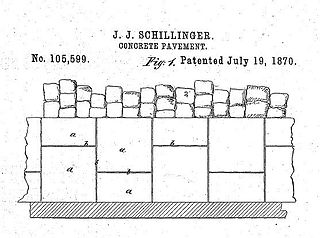
The Eleventh Amendment is an amendment to the United States Constitution which was passed by Congress on March 4, 1794, and ratified by the states on February 7, 1795. The Eleventh Amendment restricts the ability of individuals to bring suit against states of which they are not citizens in federal court.
Chisholm v. Georgia, 2 U.S. 419 (1793), is considered the first United States Supreme Court case of significance and impact. Since the case was argued prior to the formal pronouncement of judicial review by Marbury v. Madison (1803), there was little available legal precedent. The Court in a 4–1 decision ruled in favor of Alexander Chisholm, executor of an estate of a citizen of South Carolina, holding that Article III, Section 2 grants federal courts jurisdiction in cases between a state and a citizen of another state wherein the state is the defendant.
A bill of attainder is an act of a legislature declaring a person, or a group of people, guilty of some crime, and providing for a punishment, often without a trial. As with attainder resulting from the normal judicial process, the effect of such a bill is to nullify the targeted person's civil rights, most notably the right to own property, the right to a title of nobility, and, in at least the original usage, the right to life itself.
Tennessee v. Lane, 541 U.S. 509 (2004), was a case in the Supreme Court of the United States involving Congress's enforcement powers under section 5 of the Fourteenth Amendment.
Board of Trustees of the University of Alabama v. Garrett, 531 U.S. 356 (2001), was a United States Supreme Court case about Congress's enforcement powers under the Fourteenth Amendment to the United States Constitution. The Supreme Court decided that Title I of the Americans with Disabilities Act was unconstitutional, insofar as it allowed states to be sued by private citizens for money damages.
Seminole Tribe of Florida v. Florida, 517 U.S. 44 (1996), was a United States Supreme Court case which held that Article One of the U.S. Constitution did not give the United States Congress the power to abrogate the sovereign immunity of the states that is further protected under the Eleventh Amendment. Such abrogation is permitted where it is necessary to enforce the rights of citizens guaranteed under the Fourteenth Amendment as per Fitzpatrick v. Bitzer. The case also held that the doctrine of Ex parte Young, which allows state officials to be sued in their official capacity for prospective injunctive relief, was inapplicable under these circumstances, because any remedy was limited to the one that Congress had provided.
Fitzpatrick v. Bitzer, 427 U.S. 445 (1976), was a United States Supreme Court decision that determined that the U.S. Congress has the power to abrogate the Eleventh Amendment sovereign immunity of the states, if this is done pursuant to its Fourteenth Amendment power to enforce upon the states the guarantees of the Fourteenth Amendment.

The abrogation doctrine is a US constitutional law doctrine expounding when and how the Congress may waive a state's sovereign immunity and subject it to lawsuits to which the state has not consented.

Queen Anne's Revenge was an early-18th-century ship, most famously used as a flagship by Edward Teach, better known by his nickname Blackbeard. The date and place of the ship's construction are uncertain, and there is no record of its actions prior to 1710 when it was operating as a French privateer as La Concorde. Surviving features of the ship's construction strongly suggest it was built by French shipwrights, based on differences in fastening patterns in the late 17th and early 18th centuries. After several years of French service, both as a naval frigate and as a merchant vessel – much of that time as a slave ship- she was captured by Blackbeard in 1717. Blackbeard used the ship for less than a year, but captured numerous prizes using her as his flagship.

Professional Photographers of America (PPA) is a nonprofit trade association of professional photographers. As of August 2022, PPA has 35,000 members.
The North American Nature Photography Association or NANPA is an organization dedicated to photography of nature. The association's headquarters were originally in Wheat Ridge, Colorado, and now are in Alma, Illinois. Established in 1994, NANPA joined forces with ASMP at the end of 2022. Together, the two organizations have about 6,500 members in North America and internationally. Several categories of membership are available, including discounts for students. The association annually sponsors a variety of activities. Among them are regional events, nature photo competitions, and webinars throughout the United States. NANPA sponsored a Nature Photography Celebration in 2018. The NANPA Foundation, established in 1997, funds scholarships, photo blinds for wildlife photography, and grants for conservation photography projects, and to photography students. NANPA also markets books of interest to members, including those by members, through Amazon.com.
Kimel v. Florida Board of Regents, 528 U.S. 62 (2000), was a US Supreme Court case that determined that the US Congress's enforcement powers under the Fourteenth Amendment to the US Constitution did not extend to the abrogation of state sovereign immunity under the Eleventh Amendment over complaints of discrimination that is rationally based on age.

The National Press Photographers Association (NPPA) is an American professional association made up of still photographers, television videographers, editors, and students in the journalism field. Founded in 1946, the organization is based in at the Grady College of Journalism and Mass Communication at the University of Georgia. The NPPA places emphasis on photojournalism, or journalism that presents a story through the use of photographs or moving pictures. The NPPA holds annual competitions as well as several quarterly contests, seminars, and workshops designed to stimulate personal growth in its members. It utilizes a mentor program which offers its members the opportunity to establish a relationship with a veteran NPPA member and learn from them. The organization also offers a critique service, a job bank, an online discussion board, and various member benefits.
The copyright law of the United States grants monopoly protection for "original works of authorship". With the stated purpose to promote art and culture, copyright law assigns a set of exclusive rights to authors: to make and sell copies of their works, to create derivative works, and to perform or display their works publicly. These exclusive rights are subject to a time and generally expire 70 years after the author's death or 95 years after publication. In the United States, works published before January 1, 1929, are in the public domain.

Schillinger v. United States, 155 U.S. 163 (1894), is a decision of the United States Supreme Court, holding that a suit for patent infringement cannot be entertained against the United States, because patent infringement is a tort and the United States has not waived sovereign immunity for intentional torts.

In United States law, the federal government as well as state and tribal governments generally enjoy sovereign immunity, also known as governmental immunity, from lawsuits. Local governments in most jurisdictions enjoy immunity from some forms of suit, particularly in tort. The Foreign Sovereign Immunities Act provides foreign governments, including state-owned companies, with a related form of immunity—state immunity—that shields them from lawsuits except in relation to certain actions relating to commercial activity in the United States. The principle of sovereign immunity in US law was inherited from the English common law legal maxim rex non potest peccare, meaning "the king can do no wrong." In some situations, sovereign immunity may be waived by law.

The Graphic Artists Guild is a guild of graphic designers, illustrators, and photographers and is organized into seven chapters around the United States. It is a member of the international organization Icograda.

Nautilus Productions LLC is an American video production, stock footage, and photography company incorporated in Fayetteville, North Carolina in 1997. The principals are producer/director Rick Allen and photographer Cindy Burnham. Nautilus specializes in documentary production and underwater videography, and produced QAR DiveLive, a live webcast of underwater archaeology filmed at the wreck of the Queen Anne's Revenge in 2000 and 2001.
Jam v. International Finance Corp., 586 U.S. ___ (2019), was a United States Supreme Court case from the October 2018 term. The Supreme Court ruled that international organizations, such as the World Bank Group's financing arm, the International Finance Corporation, can be sued in US federal courts for conduct arising from their commercial activities. It specifically held that international organizations shared the same sovereign immunity as foreign governments. This was a reversal from existing jurisprudence, which held that international organizations had near-absolute immunity from lawsuits under the Foreign Sovereign Immunities Act and the International Organizations Immunities Act.
On August 18, 2015, then North Carolina Governor Pat McCrory (R) signed "Blackbeard's Law," N.C. General Statute §121-25(b), into law. The statute stated that,
"All photographs, video recordings, or other documentary materials of a derelict vessel or shipwreck or its contents, relics, artifacts, or historic materials in the custody of any agency of the North Carolina government or its subdivisions shall be a public record pursuant to G.S. 132-1. There shall be no limitation on the use of or no requirement to alter any such photograph, video recordings, or other documentary material, and any such provision in any agreement, permit, or license shall be void and unenforceable as a matter of public policy."








